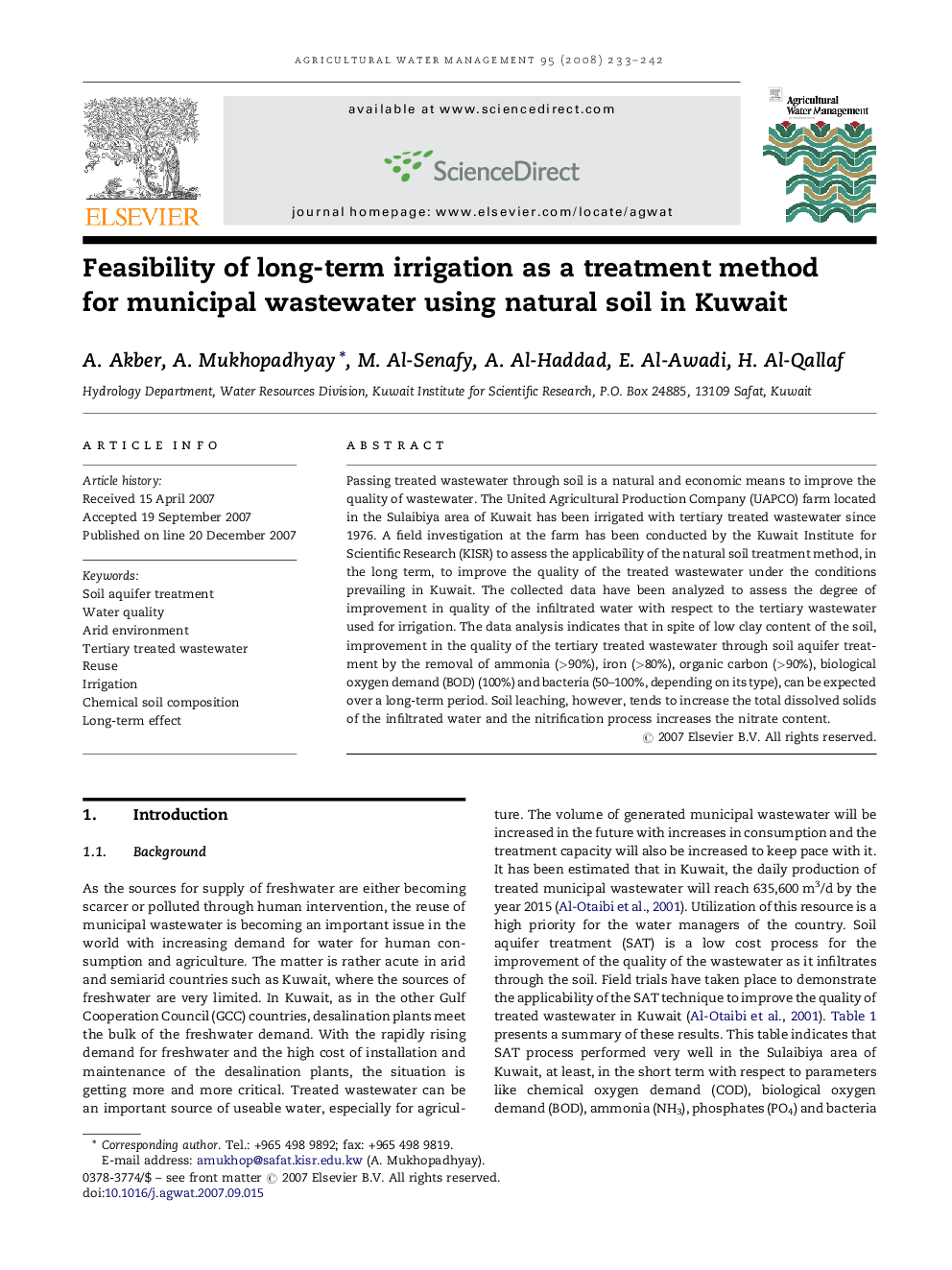| Article ID | Journal | Published Year | Pages | File Type |
|---|---|---|---|---|
| 4480271 | Agricultural Water Management | 2008 | 10 Pages |
Passing treated wastewater through soil is a natural and economic means to improve the quality of wastewater. The United Agricultural Production Company (UAPCO) farm located in the Sulaibiya area of Kuwait has been irrigated with tertiary treated wastewater since 1976. A field investigation at the farm has been conducted by the Kuwait Institute for Scientific Research (KISR) to assess the applicability of the natural soil treatment method, in the long term, to improve the quality of the treated wastewater under the conditions prevailing in Kuwait. The collected data have been analyzed to assess the degree of improvement in quality of the infiltrated water with respect to the tertiary wastewater used for irrigation. The data analysis indicates that in spite of low clay content of the soil, improvement in the quality of the tertiary treated wastewater through soil aquifer treatment by the removal of ammonia (>90%), iron (>80%), organic carbon (>90%), biological oxygen demand (BOD) (100%) and bacteria (50–100%, depending on its type), can be expected over a long-term period. Soil leaching, however, tends to increase the total dissolved solids of the infiltrated water and the nitrification process increases the nitrate content.
